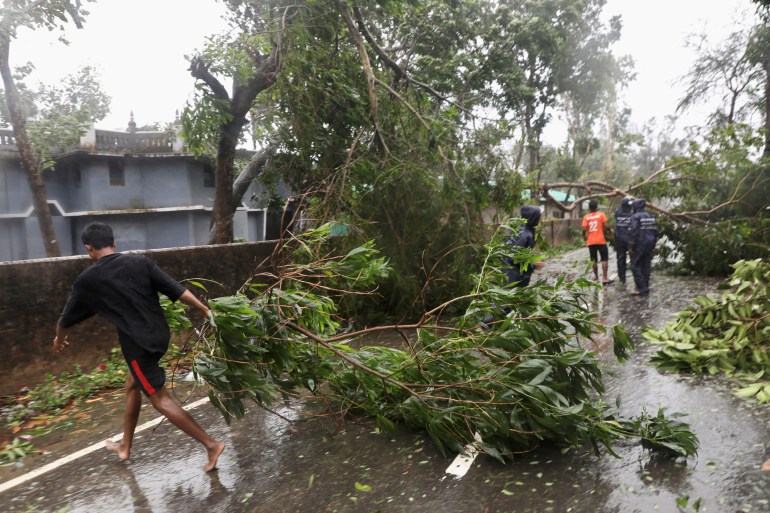The country faces its worst power cuts in months as the deadly cyclone forces closure of both its floating LNG terminals.
Cyclone Mocha, one of the strongest storms to hit the region in years, made landfall at the weekend in neighbouring Myanmar in Bangladesh’s south.
Millions of Bangladeshi citizens have been hit by frequent power cuts in recent months, as erratic weather patterns and high global energy prices have made fuel supply to power plants unreliable.
The outages have irked residents, leading to protests across the country in recent months.
“We are experiencing power cuts every other hour and there is hardly any gas to cook. Life has become painful,” said Sumi Akhter, who lives on the outskirts of the capital, Dhaka.
Zainul Abdin Farroque, a senior leader of the main opposition Bangladesh Nationalist Party, accused the government of not doing enough to ensure a reliable power supply despite hiking tariffs.
“I am in my village now and there was electricity for just 57 minutes for last 24 hours,” Farroque said.

Natural gas accounts for over half of Bangladesh’s annual power output, and the energy-hungry nation is increasingly exposed to price and supply-related shocks, as its domestic gas reserves have dwindled rapidly over the past few years.
Power supply was about 17 percent short of demand on Monday while the deficit was more than 14 percent on Sunday, data from Bangladesh’s grid operator showed. The worst shortages were witnessed after midnight, the data showed.
Bangladesh’s Summit LNG terminal, which resumed operations late on Monday, will boost supplies by two-thirds to 500 million standard cubic feet per day (mmscfd) on Tuesday, the chairman of its national gas company said.
Bangladesh’s other floating LNG unit, the Moheshkhali LNG terminal, will resume operations “in the next few days”, Petrobangla Chairman Zanendra Nath Sarker told Reuters news agency. The Moheshkhali LNG terminal is operated by Excelerate Energy.
The resumption of supply from the terminals is expected to provide a respite from power cuts, before temperatures start soaring in the latter half of the peak summer month of May, potentially further straining the grid.
Three LNG vessels shipped in by Petrobangla due to arrive this week have been delayed due to inclement weather, Sarker said.
The first vessel will arrive on May 18 instead of May 13. Two others which had been due on May 16 and May 20 have been delayed, he said, without providing more details.
